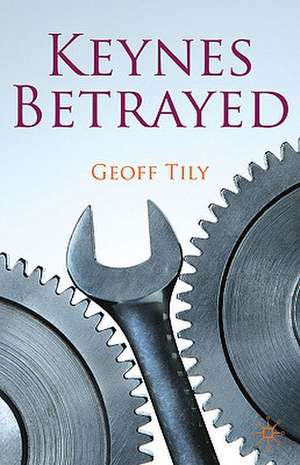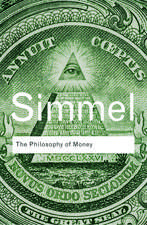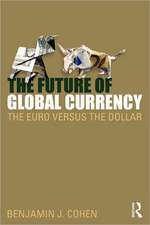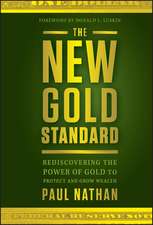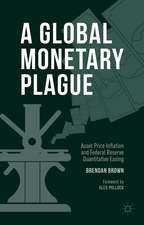Keynes's General Theory, the Rate of Interest and Keynesian' Economics
Autor G. Tilyen Limba Engleză Paperback – 31 ian 2007
| Toate formatele și edițiile | Preț | Express |
|---|---|---|
| Paperback (1) | 641.85 lei 6-8 săpt. | |
| Palgrave Macmillan UK – 31 ian 2007 | 641.85 lei 6-8 săpt. | |
| Hardback (1) | 644.95 lei 6-8 săpt. | |
| Palgrave Macmillan UK – 31 ian 2007 | 644.95 lei 6-8 săpt. |
Preț: 641.85 lei
Preț vechi: 755.13 lei
-15% Nou
Puncte Express: 963
Preț estimativ în valută:
122.82€ • 131.34$ • 102.40£
122.82€ • 131.34$ • 102.40£
Carte tipărită la comandă
Livrare economică 18 aprilie-02 mai
Preluare comenzi: 021 569.72.76
Specificații
ISBN-13: 9780230277014
ISBN-10: 0230277012
Pagini: 376
Ilustrații: X, 346 p.
Dimensiuni: 140 x 216 x 27 mm
Greutate: 0.46 kg
Ediția:2007
Editura: Palgrave Macmillan UK
Colecția Palgrave Macmillan
Locul publicării:London, United Kingdom
ISBN-10: 0230277012
Pagini: 376
Ilustrații: X, 346 p.
Dimensiuni: 140 x 216 x 27 mm
Greutate: 0.46 kg
Ediția:2007
Editura: Palgrave Macmillan UK
Colecția Palgrave Macmillan
Locul publicării:London, United Kingdom
Cuprins
Acknowledgements Introduction PART I: HISTORY Monetary Economics and Monetary Policy JMK and the Fourth Grand Monetary Discussion The Origins of Keynesian Economics PART II: THEORY The Saving-Investment Identity and the Transition to the General Theory The Theory of Liquidity Preference and Debt Management Policy The Monetary Theory of Real Activity PART III: MACROECONOMICS AFTER KEYNES Keynes's Response to Keynesian Economics The Keynesian Counter-Revolution and Thereafter The General Theory and the 'Facts of Experience' Conclusion Bibliography
Recenzii
' such an important book not merely another book on the history of Keynes's monetary thought. It provides compelling evidence of where 'Keynesians' of all shades have gone wrong and simultaneously provides them with the ammunition to generalize what passes for modern monetary theory and macroeconomics. It enables macroeconomists to put Keynes back into Keynesian economics.' - Colin Rogers, University of Adelaide, Australia
'This is an extraordinary book and a major and significant contribution to Post-Keyensian literature.' - Jan Toporowski, School of African and Oriental Studies, University of London, UK
'Above all, this book is a good read, which may achieve that rare combination of a high level of scholarship with relevance to the policy advisor.' - Mark Hayes, University of Cambridge, UK
What's all the fuss about then? Well, unlike most books on economics, this one is beautifully written, with only the simplest few equations, no acronyms or abstruse jargon in sight, and not too long. In three parts History, Theory, and Macroeconomics after Keynes Tily explains carefully and clearly what Keynes was concerned about and actually wrote; how that was used and abused by his contemporaries for their own academic purposes; and what are the implications of his persuasive arguments for the contemporary policy debate. . Tily argues in his new preface, at first surprisingly but ultimately convincingly, that it follows that Keynes's own view would have been that the problems of the last decade have been caused by so much credit advanced not at interest rates that were too low, but rather too high and that the multitude of derivatives (CDO² and so on) were then spawned in a doomed attempt to lower the effective cost of the debt burden assumed. It is a work of inspiring scholarship that will surely make a great present for someone interested in both economics and the history of the mid-twentieth century who would like to understand more about whom to support in the current vigorous policy debates: Krugman or Rogoff? Wolf or Osborne? And just what Keynes himself would have thought about what they have to say, . Do buy! - Diana Hunter, Financial World
'This is an extraordinary book and a major and significant contribution to Post-Keyensian literature.' - Jan Toporowski, School of African and Oriental Studies, University of London, UK
'Above all, this book is a good read, which may achieve that rare combination of a high level of scholarship with relevance to the policy advisor.' - Mark Hayes, University of Cambridge, UK
What's all the fuss about then? Well, unlike most books on economics, this one is beautifully written, with only the simplest few equations, no acronyms or abstruse jargon in sight, and not too long. In three parts History, Theory, and Macroeconomics after Keynes Tily explains carefully and clearly what Keynes was concerned about and actually wrote; how that was used and abused by his contemporaries for their own academic purposes; and what are the implications of his persuasive arguments for the contemporary policy debate. . Tily argues in his new preface, at first surprisingly but ultimately convincingly, that it follows that Keynes's own view would have been that the problems of the last decade have been caused by so much credit advanced not at interest rates that were too low, but rather too high and that the multitude of derivatives (CDO² and so on) were then spawned in a doomed attempt to lower the effective cost of the debt burden assumed. It is a work of inspiring scholarship that will surely make a great present for someone interested in both economics and the history of the mid-twentieth century who would like to understand more about whom to support in the current vigorous policy debates: Krugman or Rogoff? Wolf or Osborne? And just what Keynes himself would have thought about what they have to say, . Do buy! - Diana Hunter, Financial World
Notă biografică
GEOFF TILY works as an economist at the Office for National Statistics, UK. He has been a member of the Government Statistical Service since 1989. He did his MSc in Economics at University College London and a PhD under the supervision of Victoria Chick.
